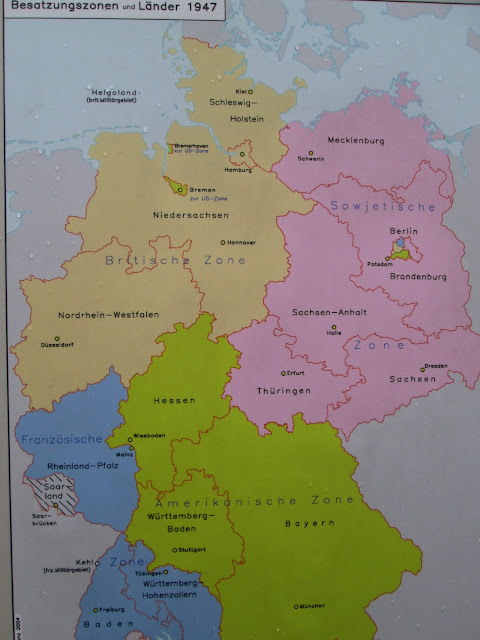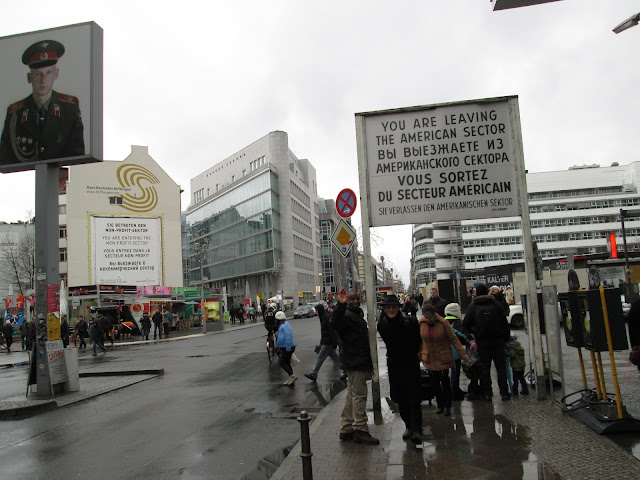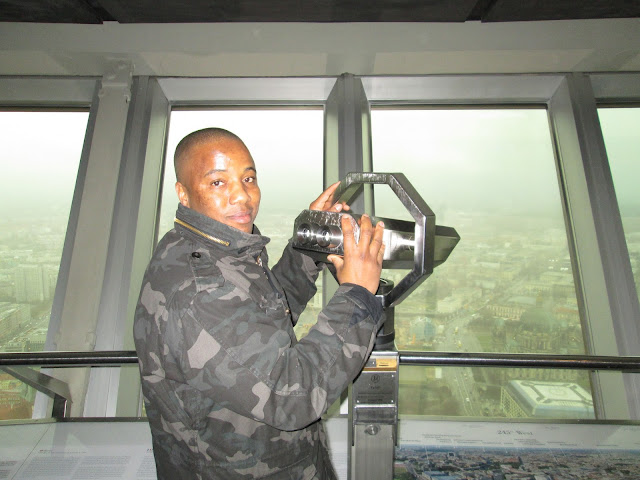"The soul is no traveller; the wise man stays at home, and when his necessities, his duties, on any occasion call him from his house, or into foreign lands, he is at home still, and shall make men sensible by the expression of his countenance, that he goes the missionary of wisdom and virtue, and visits cities and men like a sovereign, and not like an interloper or a valet” – Ralph Waldo Emerson, On Self-Reliance, 1841.
 |
| Stranger in Berlin, January 2013. |
by Kudakwashe Kanhutu
PART I
The Berlin Wall was the fault-line dividing two heavily armed military camps in the Cold War for 45 years. East versus West, Communism versus Capitalism, Socialism versus Greed, Stupidity versus Stupidity. Whatever else the wall divided and symbolised, it was the conclusive proof of humanity's folly; the ultimate symbol of humanity's lack of intelligence and; the undisputed sign of the prevalence of industrial strength insanity among mankind. I had to see this for myself, I had to stand on this fault-line and try to transport myself back to how it all began and try to establish a rapport with the logics that led humanity to stand face to face, frothing at the mouth like rabid dogs, ready to mutually destroy each other and every single blade of grass everywhere on the planet.
We have all seen on Television how judges and jurors are sometimes transported to the scene of the crime, so as to stand in the shoes of the protagonists and hope to make sense of the arguments they will hear or will already have heard. I have already heard the arguments of the protagonists, I wanted to see for myself which ones were closer to the truth. I wanted to stand in the American Sector, then the Soviet Sector, to try and understand why these two camps came to agree on their MAD solution: Mutually Assured Destruction.
 |
| The Faultline |
"But my dear gentleman," I hear you opine, "there is a Cold War fault-line still in operation, it is the De-Militarised Zone (DMZ) on the Korean Peninsula and it runs on the same fuel as the Berlin Wall, couldn't you have just gone there for these insights you seek?" Good question but, "Korea is so far," that's me by way of response, "so the flights would be too expensive for me, it's cheaper for me to just visit Berlin." (As an aside: "that's my story and I am sticking to it!").
 |
| On the DB making the now harmless crosssing from East to West Germany |
Paradise Berlin:
I have never, in my whole life, heard Berlin mistaken for paradise, allow me to try and mistake it thus: A man who is hydrophobic (fear of water), agoraphobic (fear of open spaces) and beautifulvegiphobic (fear of beautiful vegetation) will find our common conception of paradise to translate to a living hell. I made up the last phobia, but the point is that our vision of paradise implies clean abundant water, open spaces, and the most lush green vegetation imaginable. Our imaginary man would prefer death by hanging to entering this paradise we just described above. Let’s hypothesize, therefore, that a place where the above conditions are lacking would be his idea of paradise. Actually, that is a poor example as I have attempted to describe what paradise would be in the negative. Let’s try another, much more direct approach. To the people in Communist East Berlin and all the way across the Soviet Union, life in West Berlin (and the West in gen.) was their idea of paradise. I now know this for a fact, having thought all along that that depiction in the movie Goodbye Lenin! was Western propaganda. I visited the German Democratic Republic (DDR) Museum and saw for myself how truly awful life was under Communism. But I am getting ahead of myself.
 |
| How truly awful was life under Communism? |
 |
| Frierichstrasse Berlin |
At this point let me just say I have conceived Berlin as a paradise in this way: a place where the things that you like to occupy your time with exist in abundance. I am a student of strategy. A three day visit to Berlin can be the equivalent of a full semester of Strategic Studies at a World Top 3 University, unfortunately you need to have taken the semester first before Berlin can be your classroom. I mean, so that you know what to look for and its significance for strategy. I will say more on that below in the section I have titled Hitler’s Folly. For now let’s talk about my Communist pretensions and how these suffered a rude shock when I landed in Berlin on January 4th 2013!
PART II
“The Sources of Soviet Conduct”
All my life I have been a Socialist/Communist. Did I not attend the Workers strikes in Johannesburg and in Pretoria where we all donned red and shouted slogans such as “Viva Communism!” as late as 2011? Did I not sing praises of Comrade Mao Tse Tung and his Great Leap Forward as a pre-schooler in Zimbabwe? His routing of Chiang Kai Shek’s “running dogs of Western Imperialism?” Did I not read with great delight the exploits of Comrade Fidel Castro and his Cuban revolution? It may be that the communist/socialist doctrine was instilled in me as a youth but I have always, latterly, believed it could work….
To be continued…

















































No comments:
Post a Comment